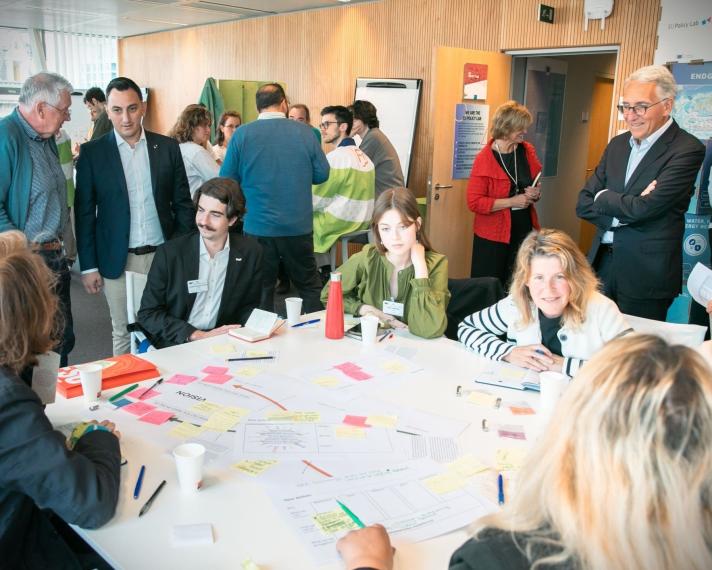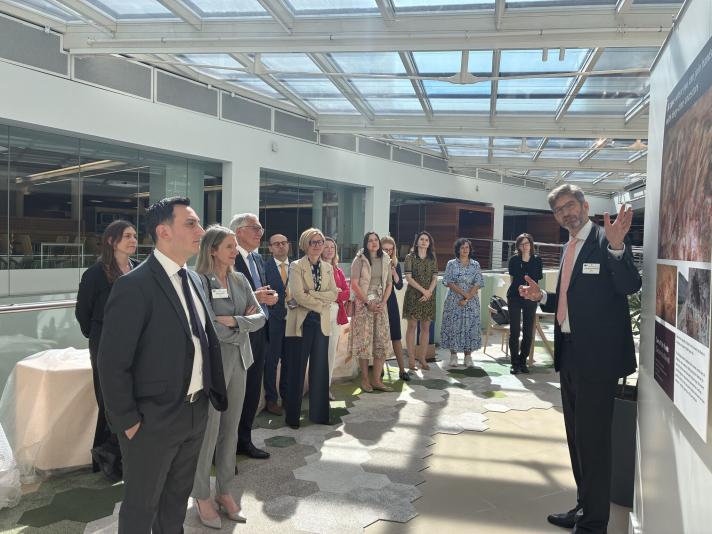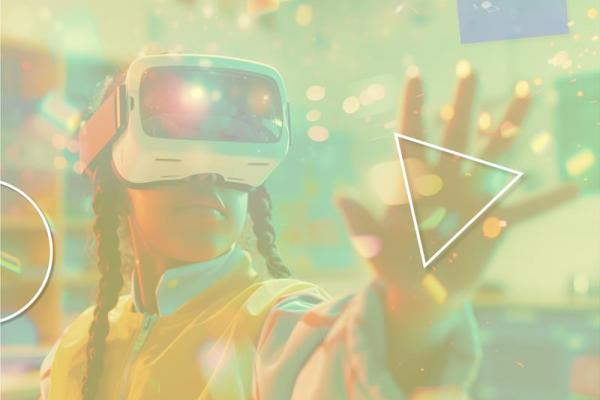
In an article earlier this year Paving the way for an EU Intergenerational Fairness Strategy - European Commission we were excited to announce the kick off of a unique line of work: helping Commissioner Micallef design an EU Intergenerational Fairness Strategy through a year-long process to “map out how we can strengthen communication between generations and ensure that interests of present and future generations are respected throughout our policy and law making”.
Between research, consultations, workshops and art exhibitions, it has been a full spring here at the EU Policy Lab. This is why we are delighted to provide a sneak peek into some of the results of the scoping phase which has yielded valuable insights and lessons that could shape the future of policymaking in Europe.
The overall aim of this future strategy is to build a fairer society by empowering all generations, both current and future, to create together their desired futures, while ensuring that the realisation of each generation's aspirations is achieved without compromising one another.
Using collaboration to understand what 'intergenerational fairness' could mean
We used the first months of 2025, between February and April, to explore various framings and core policy issues surrounding the concept of intergenerational fairness. This phase was designed to be as inclusive and collaborative as possible, engaging hundreds of participants offering a wide range of perspectives and reflecting all ages. This ensured we have a rich tapestry of points of view and that the scoping was informed by many different voices and experiences.
To leave a better future for generations to come and to fulfil our commitment to meet the demands of the present in a way that safeguards the needs and interests of future generations, while leaving no one behind
Declaration on Future Generations
Emerging key themes and issues
Intergenerational fairness is by its nature a cross-cutting concept, and three main themes emerged as pivotal areas where intergenerational fairness could shape the future of Europe:
- Governance and democratic participation: A significant focus was placed on the need for changes in governance and democratic participation. The goal is to build institutions and legal systems that integrate an intergenerational, long-term perspective. This approach aims to enhance decision-making processes, prioritising the well-being of both current and future generations. Through this future strategy, the EU has the opportunity to act as an inspiration to the whole world.
- Addressing societal challenges: The scoping phase highlighted the importance of addressing complex and long-term societal challenges through an intergenerational and intersectional lens. Key issues include environmental justice, responsible innovation, rising inequalities, and lifelong education. By incorporating intergenerational perspectives, these challenges can be tackled more effectively, encouraging social cohesion and resilience.
- Empowering all generations: Empowering all generations to protect vulnerable populations was identified as a critical theme. This involves taking into account the intersectionality of social categories that shape vulnerabilities. By reinforcing the European Social Model through intergenerational initiatives and life-course approaches, the EU can anticipate and mitigate longer-term impacts of short-term interventions.
Innovative approaches to foster empathy and creativity
The process to design this unique strategy is in itself unique – something we do very well at the EU Policy Lab, where we tailor approaches for each topic. We were able to build on all three of our core competences, foresight, design and behavioural insights, to encourage participants to think creatively and empathically about intergenerational fairness. We used guided meditation, role-playing exercises and personal storytelling to create deeper understanding and connection between past, present and future generations. This way, our participants could empathise with other age groups than their own and consider the broader timeframe of decision making, beyond the immediate present.
Apart from the hundreds of participants in our workshops, we also used the EU Citizens’ Engagement Platform to gather contributions from those who could not attend our sessions, ensuring a broad spectrum of input.
Lessons learnt and next steps
Now that we have moved on to the visioning phase, where we start imagining a broad range of possible and desirable futures in which we have achieved intergenerational fairness, we are also taking a moment to reflect on the lessons from the scoping phase which can help to inform the rest of the process.
Firstly, the importance of inclusive participation is undeniable, emphasising the need to engage a diverse range of stakeholders, particularly those often less heard, such as youth, children, and marginalised groups. This inclusivity ensures that the strategy is representative and reflective of various perspectives. Additionally, the focus should be on concrete actions that impact real people, rather than abstract generational concepts. A human-centric approach, acknowledging the diversity of individual experiences, is essential in guiding potential actions.
Secondly, building on existing practices by learning from successful and unsuccessful examples related to intergenerational fairness can provide valuable insights for effective policymaking. Financial and institutional support is crucial for implementing the strategy, necessitating coordination across different layers of governance, including the EU, Member States, and regions.
Finally, recognising the global dimension of intergenerational fairness is vital. By connecting with United Nations initiatives and considering issues beyond EU borders, the strategy can enhance its impact and relevance, contributing to a fairer, more sustainable future for all generations.
Next phase - Vision Building
The results of the scoping exercises are the starting point of the next vision building phase. As was the case for the scoping, we intend to build a vision for a fair(er) Europe through co-creation. Do you already have an idea of what a fair EU could look like in the future? To make this strategy more effective and ensure it is anchored in real needs and aspirations, we need collective visioning, through your stories.
Share your vision on our citizens’ engagement platform.
Join us online for a Collective visioning meeting on 18 July, 09:30 - 11:00 CEST. Your hopes, ideas, and experiences are essential to creating a strategy that is inclusive and future-focused.
We invite you to stay tuned, as we continue our journey towards future intergenerational fairness. Make sure you follow Commissioner Micallef on Instagram, for his Future Friday posts and subscribe to our quarterly EU Policy Lab newsletter.
Details
- Publication date
- 20 June 2025
- Author
- Joint Research Centre
- Departments
- Directorate-General for Education, Youth, Sport and Culture, Joint Research Centre
- EU Policy Lab tags





